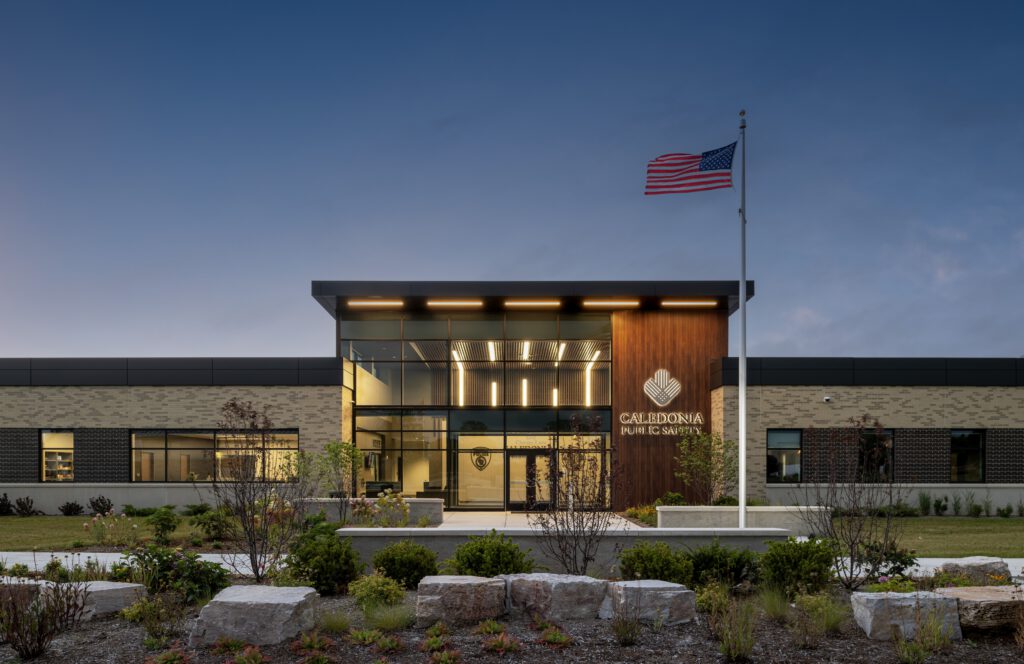- Knowledge Base
- |
- Municipal Construction Market Trends
5 Planning Mistakes That Derail Municipal Construction and How to Avoid Them
For many municipalities, public building projects – whether a fire station, police department, village hall, or public works facility – are important milestones that reflect a community’s identity, provide essential services, and drive economic growth. In the last year, Wisconsin and Illinois alone invested more than $160 million[1] and $9.7 billion[2] respectively in municipal projects across the state.
For anyone navigating municipal construction for the first time, the buying process can be daunting as they face numerous stakeholders, budget limitations, and public pressure. Engaging a construction manager early can help first-time municipal construction owners work smarter, spend wisely, and avoid costly missteps.
Riley Construction has 60 years of experience working on municipal construction projects and understands the common mistakes that occur during early-stage planning. Here’s how a construction manager can save time and money in the long run.
Mistake 1: Starting the Design Before the Budget Is Real
Municipal leaders often feel pressure to show progress by hiring an architect quickly and producing drawings. But without early cost modeling, those designs can far exceed what the municipality can actually afford. When bids come in over budget, the team is forced to “value engineer” or cut project scope or quality just to make the numbers work.
A Construction Manager (CM) provides budget validation and feasibility studies prior to the design phase. By aligning scope, cost, and funding and managing risk early, they prevent change orders, delays due to re-design, and wasted public funds. They also understand the importance of a streamlined estimation process, which goes beyond historical costs to consider client needs, project specifications, and current market conditions. This results in an all-inclusive budget that includes designs, construction and owner costs like testing, furniture, equipment, and architect reimbursables. These are things that would be unknown to an inexperienced owner. The result is fewer surprises and a realistic budget that the community can trust.
Mistake 2: Assuming Public Bidding Guarantees the Best Price
Many first-time municipal buyers believe the safest path is to select the lowest of multiple bids to benefit taxpayers. This can lead to hiring unqualified contractors who later submit costly change orders or deliver subpar work. A low bid may also not account for all necessary components, resulting in additional costs later.
Engaging a construction manager at the very beginning of the planning process positions them as strategic partners who oversee projects from day one, guiding municipalities guiding municipalities, along with the design team, to prequalify bidders to consider only the competent and financially sound subcontractor candidates.
Mistake 3: Not understanding how to manage stakeholder input
From Village presidents and police and fire chiefs to council and committee members, so many decision-makers provide input that wish lists are bound to grow while the budget remains fixed. By the time more parking or upgraded finishes are added, the budget has increased another $2 million.
The Village of Caledonia selected Riley to construct its state-of-the-art police and fire station facilities because they wanted a partner who would listen and provide guidance. Riley helped the team make thoughtful adjustments that preserved the overall project while allowing Village decision-makers to set priorities, distinguish needs from wants, and build a more efficient budget.
Working with an advisor to create a change management process can help the project owner understand the overall project cost implications of even seemingly small changes. They can also help keep decision-making on track as late decisions are a common issue leading to construction delays.

Mistake 4: Underestimating How Long Everything Takes
The excitement of a project launch can quickly turn to frustration when construction comes to a halt due to planning issues. In fact, 80% of construction project delays are due to poor planning.[3] One factor is that many project owners underestimate how long design approval, procurement lead times, bidding windows or funding steps actually take. Add in board meetings and seasonal constraints, and a timeline can get thrown off for months.
To avoid this scenario, hire an experienced expert who can create realistic schedules and share inside knowledge on public-sector approvals and bid timelines. They understand what can and can’t happen within a fiscal year and can build contingency time and phasing options into the plan. This improves the odds that your project will finish on time and on budget.
Mistake 5: Overlooking Regulations and Procurement Requirements
Each municipality operates under public transparency laws that dictate how contracts must be advertised, bid on, and awarded. Administrators unfamiliar with these processes risk procedural errors that can delay projects or even force a restart. An advisor can ensure compliance with local and state laws, help draft Request for Proposals, manage postings and document every step for audit and public review.
Municipal construction is a public trust process as much as it is a building process. Every decision must balance transparency, efficiency, and long-term value. A Construction Manager brings the expertise, foresight, and structure that first-time municipal buyers need to navigate this complex path successfully.
To learn more about Riley Construction’s collaborative approach as a trusted partner on municipal projects, reach out to Riley Project Executive (IL) Dan Sullivan , dsullivan@rileycon.com or Project Executive (WI) Chad Parker at ChadP@rileycon.com.
Categories:


